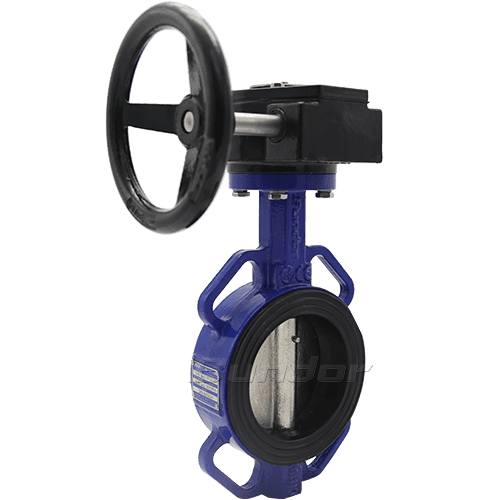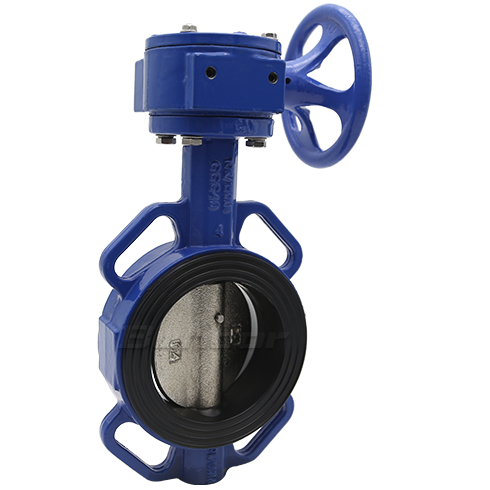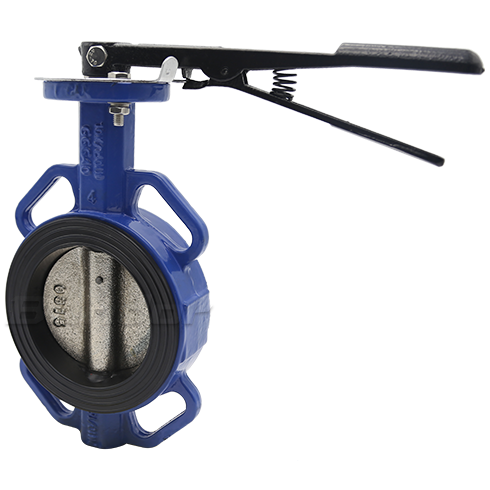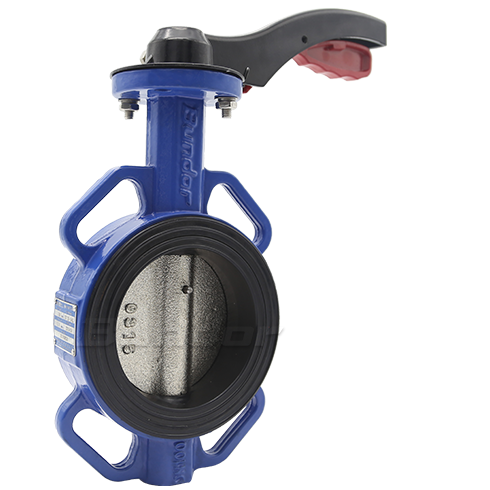The flange butterfly valve is a butterfly valve with a flange connection. Its main design feature is that the double-sided flange makes all the correction holes according to the connection standard, so it is easy to find the alignment during the installation process. Then we can use either through-bolts or single-sided bolts. This will facilitate the replacement and maintenance of the pipeline. The shaft and plate can be opened and closed with a taper pin, a torque screw or a pinless connection. From the perspective of better performance, the flange butterfly valve can be continuously optimized and improved from the valve body to the component. This article will share the situation in this regard.
The common flange butterfly valve body material is ductile iron. Its corresponding caliber is 50mm-1200mm. The corresponding diameter of the gray iron body is 50mm-1000mm. The corresponding diameter of the cast steel is 50mm-300mm. The corresponding diameter of stainless steel is 50mm-300mm. When the valve body material uses carbon steel and the valve body and the butterfly plate are welded by the steel plate, a new performance advantage is produced, that is, the weight of the whole machine can be made lighter. In addition, the sealing of the steel plate is higher than that of the cast iron, which is easy to ensure that the valve can work under high vacuum. After welding, the valve needs to be stressed to ensure that it does not deform after assembly until installation to ensure valve performance.
The flange butterfly valve bearing is made of steel back composite material, which is FZ21 type. The inner surface layer of the valve plate in contact with the valve shaft may be polytetrafluoroethylene. The material has good corrosion resistance. It is very resistant to corrosion, resistant to certain temperatures, and equivalent to foreign DU models. It is used at temperatures ranging from -200 to 280 °C and has good self-lubricating properties and long service life.
In order to continue to improve the flow characteristics of the flanged butterfly valve, we can change the end of the truss ribs in the direction of the media flow into rounded corners and remove unnecessary process holes. The flanges at both ends are changed from flat welding to insert flange end face welding. Widening the flange end face seal band will facilitate the construction and installation of the gasket and ensure a reliable seal between the valve and the pipe.
In order to ensure the quality of the flange butterfly valve, the corresponding inspection standard was developed at the same time as the development of the flange butterfly valve. The product is subjected to performance test, strength test, vacuum test test and opening and closing test before leaving the factory. After continuous improvement, the flange butterfly valve forms a complete production system in the design, manufacture and testing. The product performance is further improved and the quality is stable. In order to do better, the Bundor company also introduced the national leading equipment, that is, intelligent testing equipment, without cost.
In terms of manufacturing, we should strengthen the technical management and process control of the welded parts and the welding surface should be strictly operated and accepted according to the regulations to improve the vacuum degree of the valve. In the valve body and steam filter disc shaft hole processing, we should use a special positioning tire to ensure the processing accuracy and ensure the quality of the whole machine. The flange butterfly valve is easy to open and close, labor saving, and low fluid resistance. We can operate it often.








